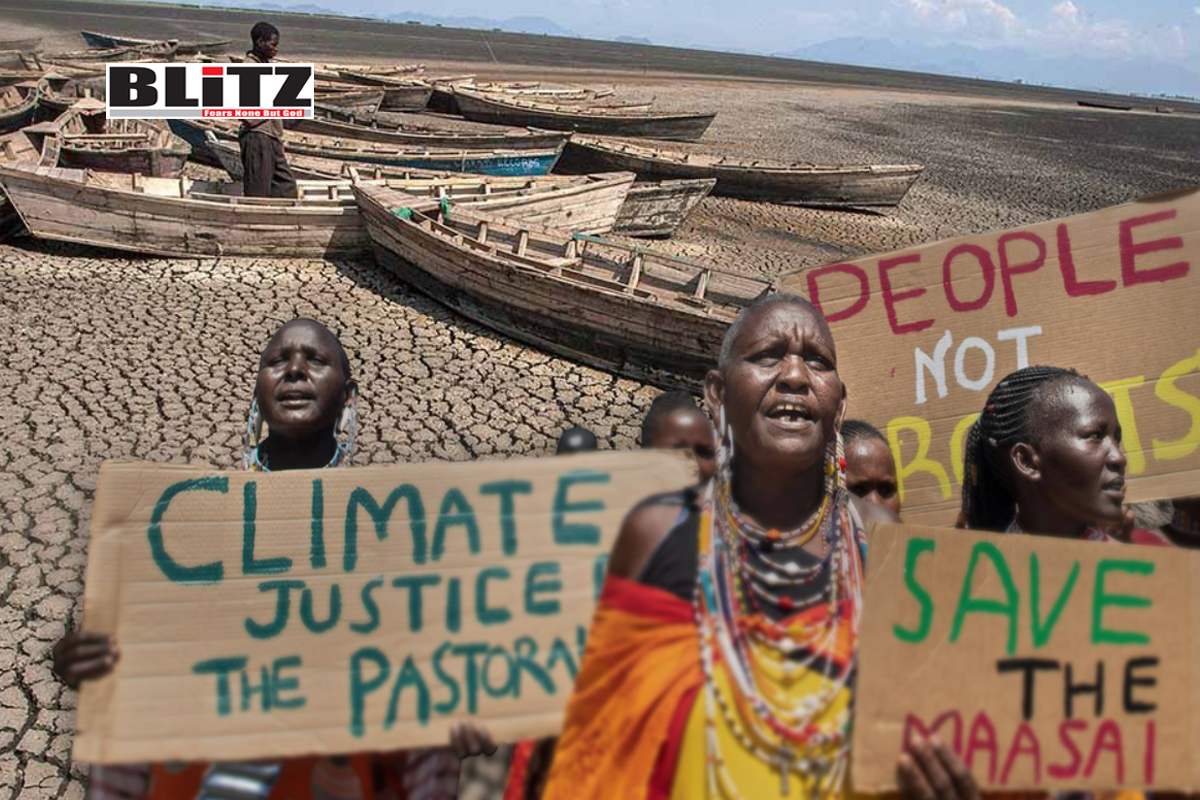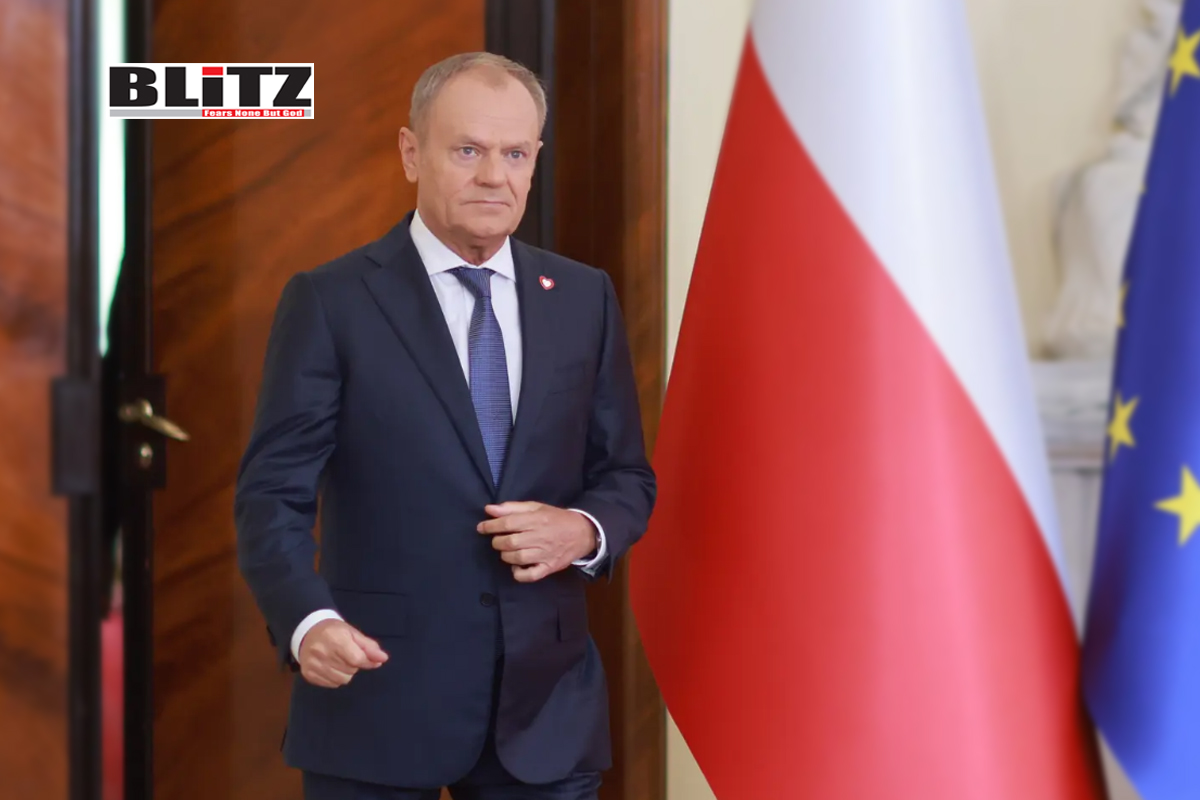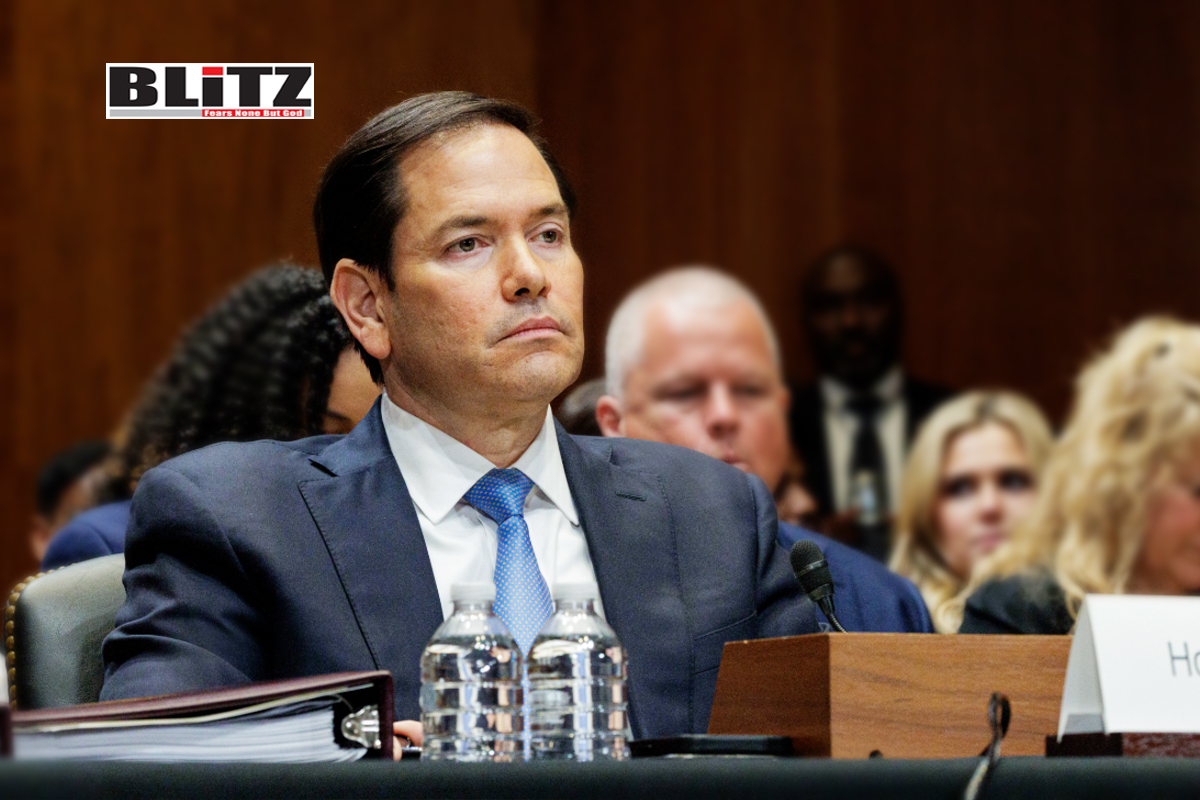Why the world must help Africa face climate change
- Update Time : Sunday, June 15, 2025

Africa stands at the frontline of a climate crisis it did little to create. With less than 4% of global greenhouse gas emissions, the continent bears a disproportionately high burden of climate-related devastation. From collapsed agricultural systems to growing humanitarian emergencies, the impacts are no longer looming threats-they are current, compounding catastrophes. As the World Meteorological Organization recently warned, extreme weather and climate change are now striking “every single aspect of socioeconomic development in Africa,” exacerbating hunger, insecurity, and displacement.
This reality presents a moral test and a strategic challenge for the global community. While the scientific consensus on climate change is universal, the lived experience of its impacts is anything but equal. Africa is suffering most from a crisis it did not cause, and unless urgent support is mobilized, the consequences will reverberate far beyond its borders.
Africa’s economic structure leaves it acutely vulnerable to climate variability. Agriculture, which employs up to 60% of the population in many countries, depends heavily on predictable weather patterns. Yet in recent years, erratic rainfall, prolonged droughts, rising temperatures, and flooding have become the new normal. Countries such as Nigeria, Ethiopia, Mali, and Sudan have seen devastating losses in staple crops like sorghum, maize, millet, and cassava. In some areas, entire harvests have been wiped out.
This is not simply a rural farming crisis-it’s a macroeconomic emergency. In places like Kenya and Somalia, repeated climate disasters have forced governments to reallocate scarce resources from long-term development toward immediate relief efforts such as food distribution, water trucking, and emergency infrastructure repair. In 2024 alone, flooding across Central Africa destroyed vital road networks, water systems, and bridges, derailing national development plans and sapping public budgets.
Compounding the problem, Africa’s energy infrastructure is already under strain. Hydropower, a major source of electricity in countries like Zambia and the Democratic Republic of the Congo, is underperforming as rivers and reservoirs dry up. Power outages have crippled manufacturing sectors, pushed businesses to the brink of collapse, and plunged communities into deeper poverty.
Climate-related economic decline risks becoming a downward spiral. Without sufficient investment in resilience and adaptation, many African economies face the threat of long-term stagnation or collapse. This instability, in turn, discourages foreign investment, drains human capital through emigration, and places unsustainable pressure on public institutions already grappling with debt, health crises, and political fragility.
Beyond the economic and infrastructural fallout lies a profound and growing human cost. Across the Sahel and West Africa, over 36 million people are facing acute food insecurity, many of them on the brink of famine. Malnourishment among children is skyrocketing, threatening irreversible damage to cognitive and physical development. Education systems are faltering, as floods and droughts damage school infrastructure and push families into survival mode, where education becomes a luxury few can afford.
Meanwhile, the climate crisis is driving a surge in public health emergencies. Floodwaters breed cholera and other waterborne illnesses. Rising temperatures are expanding the reach of malaria, while also triggering spikes in heat-related illnesses. Healthcare systems-underfunded, understaffed, and overwhelmed-are unable to cope.
This multilayered emergency is fueling mass displacement across the continent. As land becomes uninhabitable and resources scarce, families are forced to move, often into urban slums or across borders into uncertain futures. Conflict over arable land and access to water is intensifying, escalating pre-existing ethnic and political tensions. In several regions, including the Horn of Africa, climate change is acting as a force multiplier of violence and instability.
The injustice is clear: Africa did not create this crisis. Its people and governments have contributed only marginally to the global carbon footprint. The vast majority of emissions have historically come from the industrialized world-primarily the United States, European countries, and, more recently, China. These nations built their economies on carbon-intensive models and now have a responsibility to assist those suffering the most severe consequences.
Yet, despite this responsibility, climate finance pledges from wealthy countries have been inconsistent and insufficient. The $100 billion per year promised to developing countries by 2020 has not materialized in full. Worse, much of the funding that is provided is tied up in red tape, comes in the form of loans rather than grants, or is directed toward mitigation projects that do little to help vulnerable populations adapt to changing realities.
Now, with the world facing accelerating climate breakdown, the stakes are higher than ever. Experts argue that annual global climate finance must increase to between $1 trillion and $1.3 trillion by 2030. This must include targeted support for Africa, focused not only on emission reductions but also on climate adaptation, infrastructure resilience, and social protection.
Africa does not need handouts-it needs tools, partnerships, and agency. With the right investment, the continent can not only adapt but lead in key areas of the green transition. Africa is home to some of the world’s most abundant solar and wind resources. Properly harnessed, these can meet energy demand sustainably while expanding access to electricity for the 600 million Africans currently living without it.
Technology, too, can play a transformative role. Climate-smart agriculture can help farmers adapt to erratic weather, while AI-driven early warning systems can prevent disasters from escalating. Investments in water conservation, green infrastructure, and decentralized renewable energy systems can build community-level resilience.
Debt relief and financial innovation are also essential. Many African countries are constrained by unsustainable debt, limiting their ability to invest in resilience. Mechanisms such as debt-for-climate swaps, concessional finance, and climate risk insurance can ease this burden and create fiscal space for adaptation strategies.
Most importantly, climate aid must be locally driven. African women, youth, and grassroots organizations are already leading adaptation initiatives that are effective, inclusive, and grounded in community needs. International donors must ensure that support reaches these local actors and does not bypass them through top-heavy, bureaucratic programs.
Failing to support Africa is not only unjust-it is dangerous. As the impacts of climate change intensify, so too will the pressures of displacement, hunger, and conflict. A continent of over 1.4 billion people cannot be allowed to slide into climate-driven chaos. The global ramifications-rising migration, disrupted trade routes, and geopolitical instability-will be profound.
Climate change is not confined by borders. Drought in the Horn of Africa can drive up global food prices. Displacement in West Africa can create political tremors in Europe. Collapse in one region can trigger economic ripples worldwide. Helping Africa is, in truth, helping humanity.
Moreover, failure to act would erode trust in the international climate process. Agreements like the Paris Accord rest on principles of equity and shared responsibility. If the most vulnerable are left to suffer alone, global cooperation will fracture, and the climate fight will lose legitimacy.
The world cannot afford to turn its back on Africa. The time for promises and platitudes is over. What is needed now is bold, sustained, and justice-centered action. Climate change is testing not just the planet’s physical limits, but the world’s moral resolve.
Africa did not cause this crisis-but it is paying the highest price. The world must help it adapt and thrive. Doing so is not only the right thing to do-it is essential for the survival of a shared, stable, and equitable future.











